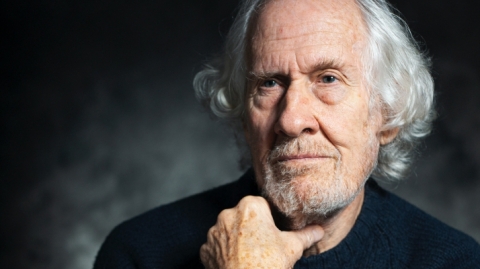Longevity: Andropause
How many of us have ever considered the impact of andropause? Yes, andropause, not menopause. Andropause is the male equivalent of menopause but has certainly not received comparable attention. When one googles menopause, one gets almost 1.76 Billion hits, when one googles andropause one gets 1.9 Million hits. Using Pubmed, a medical article search engine, menopause gets 89,142 citations, Andropause 692.
Menopause occurs in women at a relatively young age and is accompanied by clear physical changes including cessation of menses and hot flashes that compels attention. Male andropause, in contrast, occurs later in life and has a very gradual onset. Most men are completely unaware that it is happening.
What are the most compelling physical and physiologic characteristics of andropause? Testosterone is the male hormone that characterizes maleness. It drives men's sexual functioning, promotes the production of sperm, causes the growth of facial hair, increases muscle mass and bone strength.
As men age, testosterone levels drop very gradually, about 1% to 2% each year — unlike the relatively rapid drop in estrogen that causes menopause. The testes produce less testosterone, there are fewer signals from the pituitary telling the testes to make testosterone, and a protein (called sex hormone binding globulin (SHBG)) increases with age. All of this reduces the active (free) form of testosterone in the body.
What are the clinical manifestations of Andropause? Among the most common significant correlates of falling testosterone levels are: loss of muscle strength and possibly height, low energy levels, depression, and decreasing sexual interest and functioning.
Because the onset is so slow and insidious most individuals and couples are not aware of the medical aspects of the deterioration and may relate these changes entirely to depression. This frequently becomes most noteworthy when men retire. Retirement itself may cause loss of libido and depression which can be clinically significant. All too often, however these may also be related to male "change of Life" or Andropause.
What can or should be done about Andropause? First and foremost be aware of its existence and that it can contribute to declines in physical and sexual functioning. When it becomes overwhelming, frequently in association with retirement, it is compelling that men identify leisure time activities that engage them both physically and intellectually. These can be hobbies, volunteer work, travel and should include some form of physical exercise to retard muscle weakness and bone frailty. The role of Testosterone replacement therapy remains controversial and is usually only indicated in premature and accelerated Andropause. As always, awareness of its existence is of the utmost importance.
By Morton Leibowitz, MD, FACP, FACC








Comments